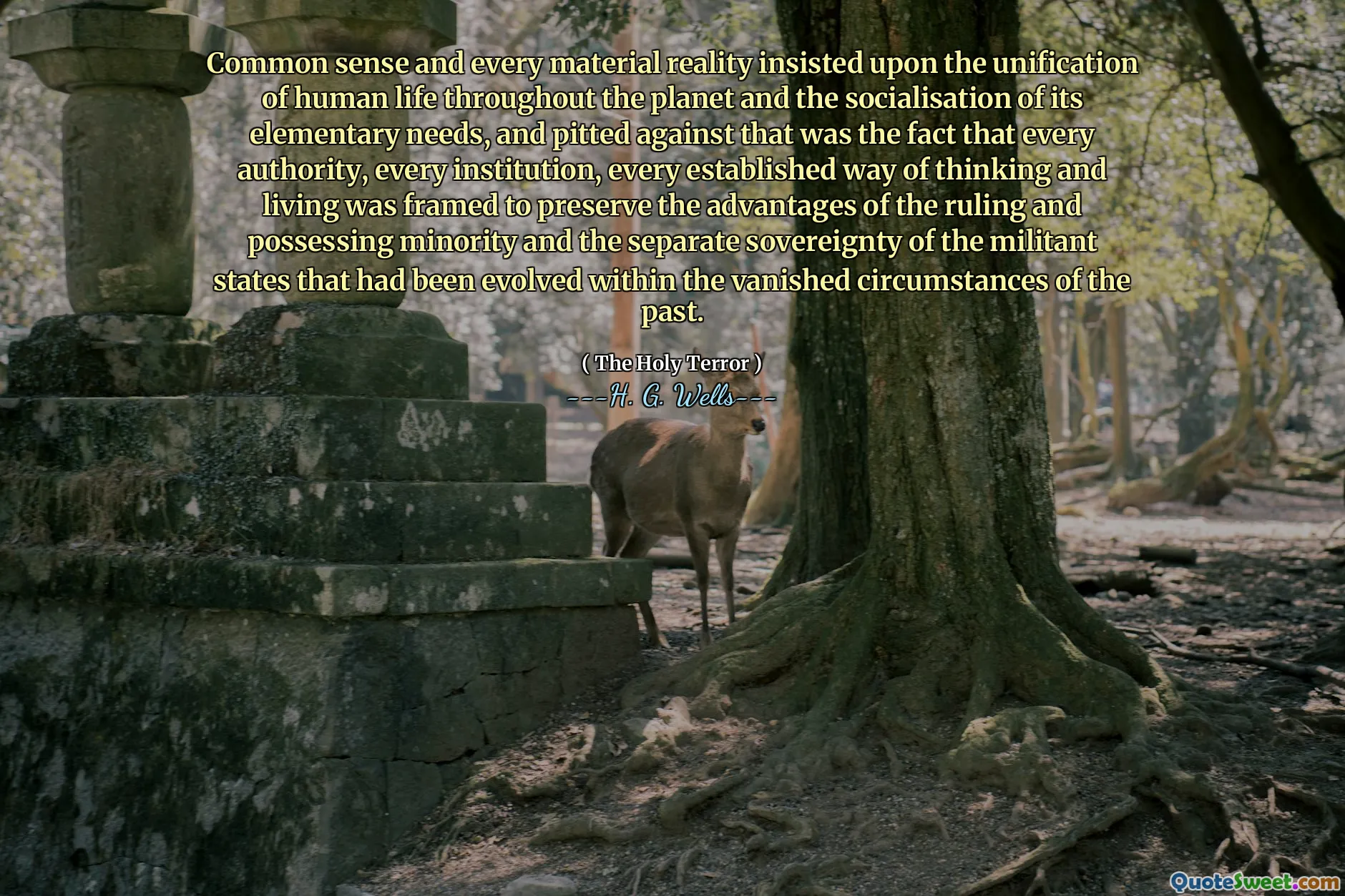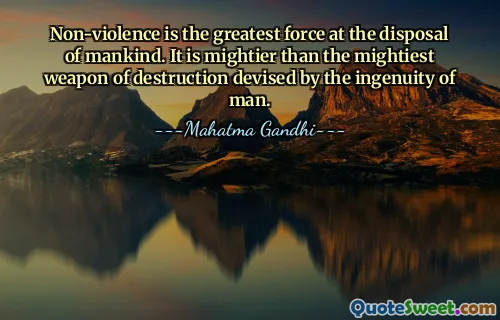
Common sense and every material reality insisted upon the unification of human life throughout the planet and the socialisation of its elementary needs, and pitted against that was the fact that every authority, every institution, every established way of thinking and living was framed to preserve the advantages of the ruling and possessing minority and the separate sovereignty of the militant states that had been evolved within the vanished circumstances of the past.
In "The Holy Terror," H. G. Wells emphasizes the necessity for global unity in human existence and the importance of collective provision for basic needs. He argues that common sense and material reality demand this unification, highlighting a natural inclination towards social cooperation among people. However, this ideal faces significant opposition from established authorities and institutions. These entities are structured to maintain the privileges of a ruling minority and the independence of militant states that arose under outdated conditions.
Wells critiques how societal norms and historical legacies hinder progress toward unification, illuminating the conflict between the aspirations for a more connected human experience and the barriers imposed by existing power structures. He underscores the importance of overcoming these obstacles to achieve a more equitable and integrated society, urging a reevaluation of the systems that currently dominate human life.








